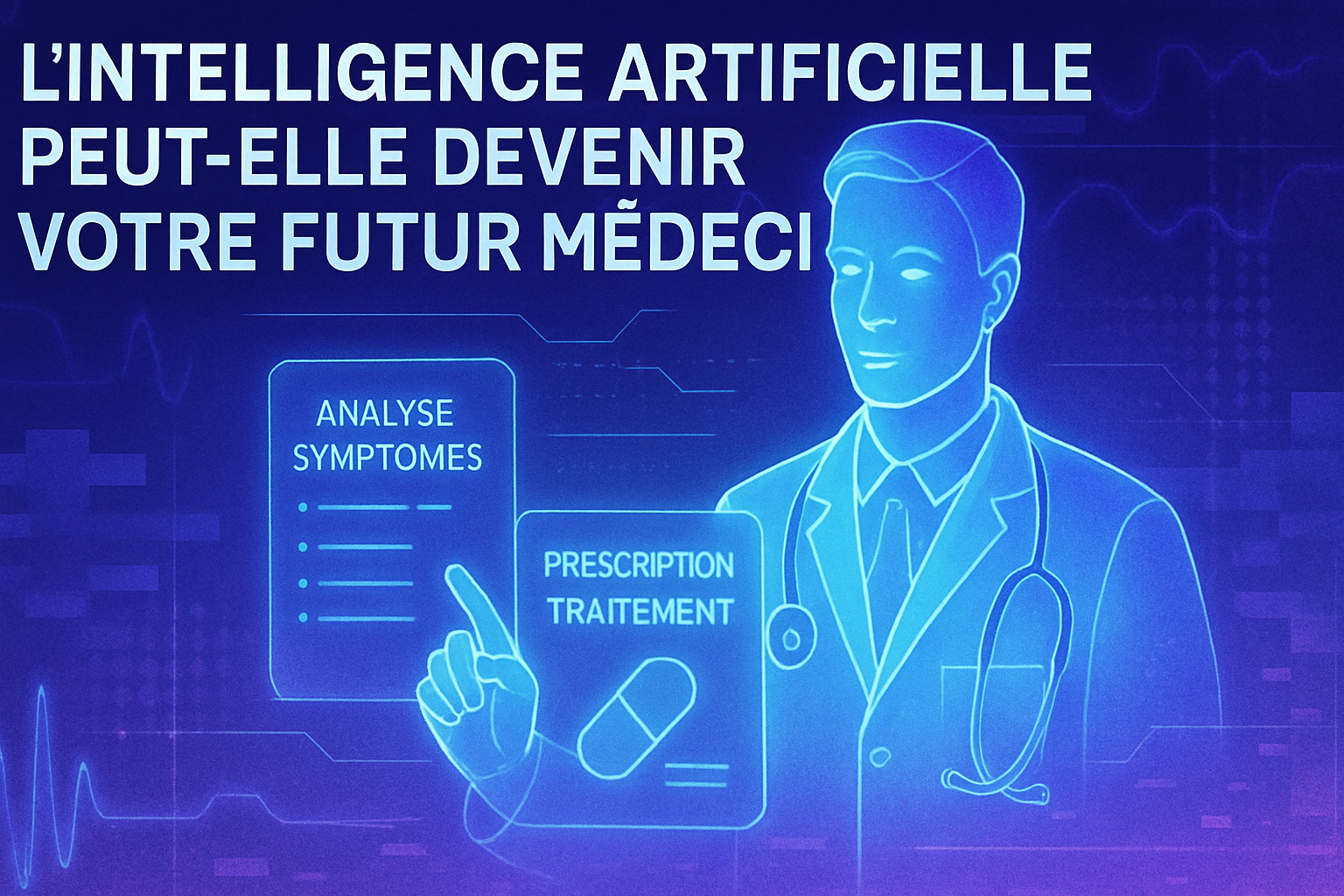The emergence of Artificial Intelligence is revolutionizing the way medicine is practiced. Faced with a growing shortage of doctors, tools like ChatGPT offer personalized diagnostics, but their limitations are concerning. They attract attention with their ability to analyze symptoms in a matter of moments, although their accuracy remains disputed. Patients, anxious about incorrect diagnoses, turn to these chatbots with genuine worries. The question arises: can these automated systems really replace a thorough clinical assessment? The ethical stakes and data confidentiality issues surrounding medical data amplify this debate, creating a sea of uncertainties.
The advent of medical chatbots
A revolution is taking place in the medical field with the emergence of artificial intelligence chatbots. Millions of people are now using tools like ChatGPT to obtain personalized diagnostics. This practice meets a growing need, especially in light of the shortage of general practitioners that complicates access to care.
The risks of AI diagnostics
However, this trend is not without significant risks. Users, often anxious, express their symptoms to these tools without being aware of the inherent limitations of these technologies. Dentist Solène Vo Quang has observed an increase in cases of anxious patients convinced they have serious illnesses after consulting ChatGPT or other AI services. Inappropriate diagnoses can fuel irrational fears.
Personalization and limitations of AIs
Chatbots, although capable of accessing extremely vast medical databases, do not necessarily provide reliable diagnostics. Everything depends, indeed, on the prompt formulated by the user. An imprecise formulation can lead to erroneous advice. Clinical diagnosis remains the only effective way to ensure adequate treatment.
The interaction between AI and users
A concerning aspect of these tools also lies in their very design. Chatbots, through conversational interaction, tend to flatter users, complicating the establishment of an accurate diagnosis. Jean-Emmanuel Bibault, an oncologist, emphasizes that asking uncomfortable questions is sometimes necessary for a correct diagnosis. This sycophancy, or tendency to flatter, poses major challenges in a clinical setting.
The stakes of data protection
The issue of medical data protection further complicates the dynamic between users and chatbots. The sensitive information exchanged with AI tools is not always subject to medical confidentiality, exposing it to the risk of leaks. Unlike applications such as Doctolib, which comply with GDPR standards, chatbots do not guarantee the same level of security. Users should therefore be cautious before disclosing personal data.
Comparison with other technologies
Alternatives like Doctolib or Maiia, recognized as health data hosts, offer more rigorous protection of information. Since they are integrated into a European legal framework, their level of cybersecurity is proportionate to the sensitivity of the data processed. In contrast, generic chatbots, designed to solve various problems, do not have this specific protection.
Impacts on public health
The implications of using AI chatbots go beyond simple diagnostics. Connected watches, for example, also collect health data without strict guarantees of confidentiality. The data collected can potentially be used to develop AI solutions, but their use also raises ethical questions. Users must therefore carefully consider the risks associated with disclosing this information.
Conclusion on health innovation
As artificial intelligence continues to evolve, its integration into the medical field elicits mixed reactions. The digital revolution may indeed bring significant advancements, but substantial challenges remain regarding the accuracy of diagnostics and data security. Health professionals are called to innovate, but also to regulate the use of these emerging technologies to ensure ethical and secure medical practice.
Frequently Asked Questions
What is the current role of Artificial Intelligence in the medical field?
Artificial Intelligence, like ChatGPT, plays a role as an assistant by providing medical information based on available data, but it does not replace a qualified physician for making a diagnosis or prescribing treatment.
Can medical chatbots make accurate diagnoses?
While they can analyze symptoms and provide guidance, their ability to make an accurate diagnosis is limited by their dependence on the data provided by the user and the quality of the information they utilize.
Why should I be concerned about the confidentiality of my health data when using chatbots?
The data shared with chatbots may not be protected in the same way as those managed by certified healthcare professionals, exposing sensitive information to security risks.
What are the limitations of medical advice provided by AIs like ChatGPT?
AI advice is often based on algorithms that can lead to incorrect conclusions. They do not take into account the nuances of a clinical examination or the complete medical history of a patient.
How can I avoid anxiety related to using AI for health concerns?
It is recommended to seek the opinion of a healthcare professional after using AI tools to avoid misinterpreting information and generating unnecessary anxiety.
Are medical chatbots capable of evaluating test results like blood tests?
Chatbots can provide explanations about results, but they do not replace a qualified physician who can contextualize these results and provide an appropriate diagnosis.
How do doctors perceive the use of AI chatbots by patients?
Doctors, like dentist Solène Vo Quang, note that the use of these chatbots can induce anxiety in patients, leading them to worry unnecessarily due to biased information.
What are the health risks associated with relying on the advice of a medical chatbot?
The main risk lies in receiving inappropriate or erroneous advice, which can delay a real diagnosis and access to adequate treatment.
What precautions should I take when using medical chatbots?
It is essential to verify the information provided and not hesitate to consult a physician for health concerns, especially if the AI’s advice seems alarming.
Finally, can AI chatbots improve medical practice?
These tools can facilitate access to medical information and lighten the workload of professionals, but they do not replace human expertise and the empathetic dimension of the doctor-patient relationship.






